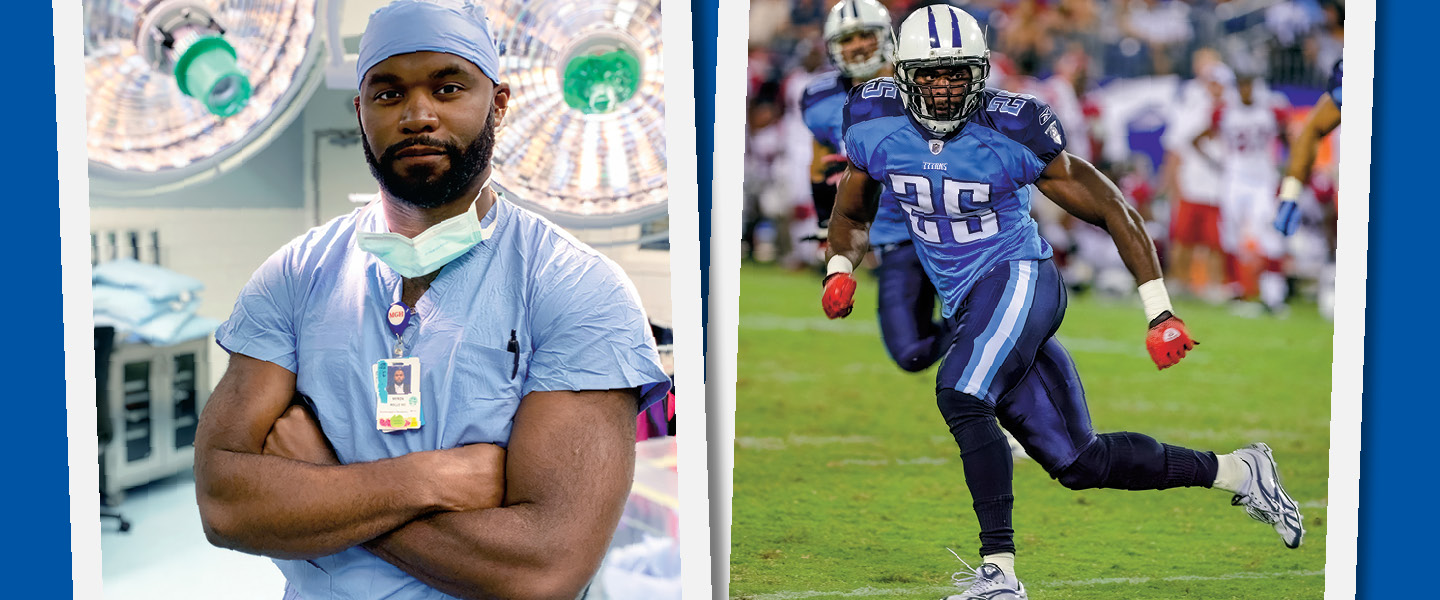After a month without football, Myron Rolle was flailing.
At 25 years old, his pro football career as an N.F.L. safety looked grim: He was released in 2011 after two seasons with the Tennessee Titans and had failed in his attempt to make the Pittsburgh Steelers’ roster. Without the structure and rigor of a football career, Rolle struggled to make sense of what would come next.
But Rolle had always had a plan B. He grew up in New Jersey, the son of immigrants from the Bahamas. At 11, he’d read Gifted Hands, Ben Carson’s popular 1990 memoir that detailed how Carson went from being an inner-city youth with poor grades to the director of pediatric neurosurgery at Johns Hopkins University Hospital. After reading it, Rolle started chasing two dreams: being a pro football player and becoming a neurosurgeon like Carson.
For years, the neurosurgeon dream lay dormant while he pursued football glory. Rolle flourished playing as a defensive back for Florida State University (F.S.U.), and the Titans drafted him in 2010.
After a month without football, Myron Rolle was struggling.
When he was 25 years old, his pro football career as an N.F.L. safety looked grim. He was released in 2011 after two seasons with the Tennessee Titans. And he had failed in his attempt to make the Pittsburgh Steelers’ roster. Without the structure of a football career, Rolle struggled to make sense of what would come next.
But Rolle had always had a plan B. He grew up in New Jersey. He was the son of immigrants from the Bahamas. At 11, he’d read Gifted Hands, Ben Carson’s popular 1990 memoir. It detailed how Carson went from being an inner-city youth with poor grades to the director of pediatric neurosurgery at Johns Hopkins University Hospital. After reading it, Rolle started chasing two dreams. He wanted to be a pro football player and a neurosurgeon like Carson.
For years, the neurosurgeon dream lay dormant. He was chasing football glory. Rolle flourished playing as a defensive back for Florida State University (F.S.U.). The Titans drafted him in 2010.

